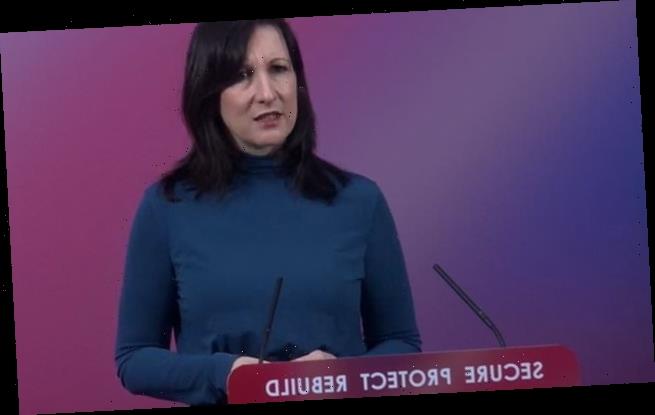How to spot a liar: People tend to speak slower and put less emphasis in the middle of words when they’re telling a fib, study finds
- Researchers synthesised voices saying words in different tones and pitches
- This was to mimic the ‘sound signature’ humans use when lying or being honest
- They then had volunteers listen to sounds and rate words as honest or dishonest
- They found slower speech and less emphasis was a signature for dishonesty
When someone tells a lie it is possible to catch them out – as they are more likely to speak slowly and put less emphasis in the middle of words, according to a study.
Researchers from Sorbonne University conducted a series of experiments designed to understand how we decide, based on voice alone, whether a speaker is honest.
They found that there was a signature in the voice of a liar – slower speech and less emphasis on the middle of a word – that the brain can automatically detect – even when not actively trying to determine whether someone is being honest or not.
It is hoped the discovery could be used in the future to develop ‘light tools’ that the police could use to determine whether a criminal is lying.
Researchers from Sorbonne University conducted a series of experiments designed to understand how we decide, based on voice alone, whether a speaker is honest. Stock image
PROSODY: THE MELODY OF A WORD
Researchers found that the prosody of a word can carry a signature that allows people to determine the honesty of another person.
Prosody is concerned with the melody of speech – that is the pitch, rate and intensity of a spoken word.
Intonation, tone, stress and rhythm are also aspects of the prosody signature.
It can reflect the emotional state of the speaker and any presence of irony or sarcasm being spoken.
A study by French researchers found that prosody of a lie includes slower speech, less emphasis on the middle of the word and rising inflection at the end of the word.
Study authors say if you want to be thought of as honest and confident then speak faster, put greater intensity in the middle of a word and drop pitch at the end.
These subtle changes to the way we speak are registered by the brain ‘automatically’ and it happens in a number of languages including English, French and Spanish.
The French researchers used vocal signal processing to create random pronunciations of words including rising and falling pitch.
They then asked multiple groups of volunteers whether the words were pronounced with a certainty or with honesty.
The success of human cooperation depends on mechanisms enabling individuals to detect unreliability in the people they deal with regularly.
Despite being a vital part of human society, researchers don’t really know exactly what sensory inputs humans use to determine another’s reliability.
To try and work this out, the French researchers used a data driven method to decode the prosodic features that drive listeners perceptions of a speakers certainty and honesty across pitch duration and loudness.
‘Here we show that listeners’ perceptions of the certainty and honesty of other speakers from their speech are based on a common prosody signature,’ they said.
Study authors say if you want to be thought of as honest and confident then speak faster, put greater intensity in the middle of a word and drop pitch at the end. Stock image
Prosody refers to the ‘melody’ of a phrase or word: its pitch, rate, and intensity.
‘We find that these two kinds of judgments [certainty and honesty] rely on a common prosodic signature that is perceived independently from individuals’ conceptual knowledge and native language,’ the study authors wrote.
‘Finally, we show that listeners extract this prosodic signature automatically, and that this impacts the way they memorise spoken words.
‘These findings shed light on a unique auditory adaptation that enables human listeners to quickly detect and react to unreliability during linguistic interactions.’
They found that this ‘intrinsic’ ability to detect ‘signatures’ in a voice could be used to determine whether the person is telling the truth or peddling in porkies.
‘Prosody consequently conveys information on the truth-value or certainty of a proposition,’ the team wrote.
They are now trying to understand how speakers produce such prosody based on their intentions – rather than just how people perceive different pronunciations.
The findings have been published in the journal Nature Communications.
How to tell if someone is lying to you: Watch to see if they mimic your actions
Any poker expert knows the power of ‘tells’ – small actions that indicate a player is trying to deceive their opponent.
Now a new study suggests one of the best ways to tell if someone is lying to you is to see if they mimic your actions.
Dutch researchers from Erasmus Universiteit Rotterdam used motion capture to monitor the behaviour of liars as they told increasingly bigger lies to someone else.
We can imitate the behaviour of others unconsciously, and we become more likely to automatically mimic them if the brain is working hard, the researchers explained.
Because it’s harder for the brain to be dishonest than to tell the truth, we tend to mimic our victims when we’re being deceitful, they added.
Source: Read Full Article



